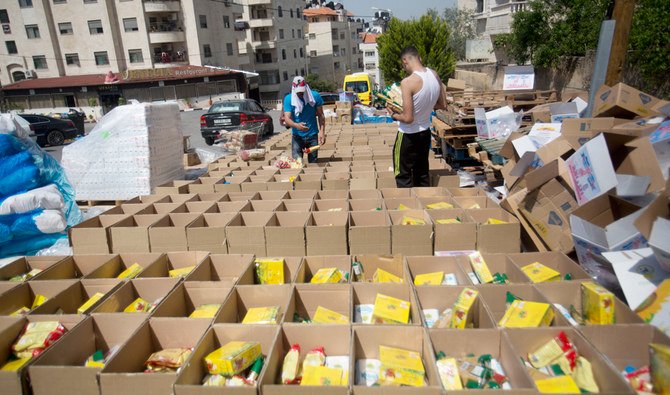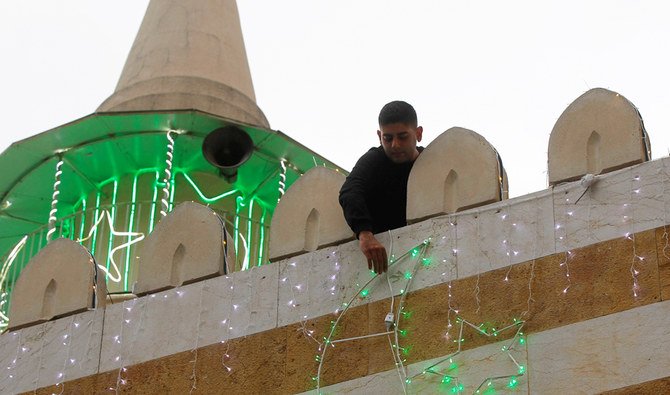



JAKARTA: Days before the holy fasting month of Ramadan begins, the Islamic world is grappling with an untimely paradox of the new coronavirus pandemic: Enforced separation at a time when socialising is almost sacred.
The holiest month in the Islamic calendar is one of family and togetherness — community, reflection, charity and prayer.
But with shuttered mosques, coronavirus curfews and bans on mass prayers from Senegal to Southeast Asia, some 1.8 billion Muslims are facing a Ramadan like never before.
Across the Muslim world the pandemic has generated new levels of anxiety before Ramadan begins on or around Thursday.
In Algiers, Yamine Hermache, 67, usually receives relatives and neighbors at her home for tea and cold drinks during the month that Muslims fast from dusk till dawn. But this year she fears it will be different.
“We may not visit them, and they will not come,” she said, weeping. “The coronavirus has made everyone afraid, even of distinguished guests.”
In a country where mosques have been closed, her husband Mohamed Djemoudi, 73, worries about something else.
“I cannot imagine Ramadan without Taraweeh,” he said, referring to additional prayers performed at mosques after iftar, the evening meal in which Muslims break their fast.
“We are all in one boat, if we commit together we’ll safely reach the shore. We used to have a lot of social activities during Ramadan, this year it will be different and I urge everyone to commit to social distancing,” Saudi Arabian Health Minister Tawfiq Al-Rabiah said in a televised address on Monday.
In Jordan, the government, in coordination with neighboring Arab countries, is expected to announce a fatwa, or edict, outlining what Ramadan rituals will be permitted, but for millions of Muslims, it already feels so different.
From Africa to Asia, the coronavirus has cast a shadow of gloom and uncertainty.
In Algeria, restaurant owners are wondering how to offer iftar to the needy when their premises are closed.
In Senegal, the plan is to continue charity in a limited way. In the capital Dakar, charities that characteristically hand out “Ndogou,” baguettes slathered with chocolate spread, cakes, dates, sugar and milk to those in need, will distribute them to Qur’anic schools rather than on the street.
In Indonesia, the world’s largest Muslim-majority country, some people will be meeting loved ones remotely this year.
Prabowo, who goes by one name, plans to host Eid Al-Fitr, the celebration at the end of the fasting month, via the online meeting site Zoom instead of flying home.
“I worry about the coronavirus,” he said. “But all kinds of togetherness will be missed. No iftar together, no praying together at the mosque, and not even gossiping with friends.”
Reuters